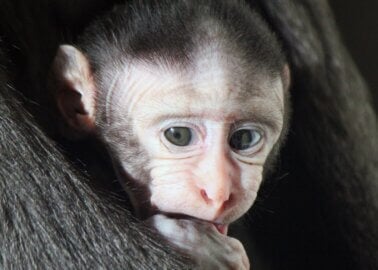When We Rely on Tests on Animals, Human Babies Can Die
Although non-human animals have the capacity to suffer, just as we do, there are vast differences in our physiology and metabolism that make it very difficult to apply results from tests on animals to humans. Research shows that animals’ responses to drugs can be very different from our own, yet scientists and regulators continue to rely on the results of tests on animals – and in one recent clinical trial in the Netherlands, 11 babies died.
Scientists gave Viagra-like pills (sildenafil) to pregnant women whose placentas were underperforming, telling them that the drug could help by improving blood supply through the placenta and promoting the growth of the foetus in the womb. Tragically, some of the babies died as a result of lung problems associated with the drug.
Dogs, rats, mice, rabbits, and sheep have repeatedly been force-fed or injected with Viagra-like pills. This includes pregnant animals, who had been deliberately drugged to induce pre-eclampsia (a condition characterised by high blood pressure and elevated levels of protein in the urine). In fact, in one study, Viagra decreased the mortality rate of rat foetuses – the opposite of what has occurred in humans.
Just like human mothers, animal mothers form strong bonds with their offspring. But during experiments like these, their young are killed and dissected either before or after birth.
Viagra isn’t the only drug found to be safe in animals that has had devastating effects on humans.
In the 1950s, a drug called thalidomide – which was prescribed to women during pregnancy as a treatment for morning sickness – caused an estimated 10,000 birth defects and thousands of foetal deaths worldwide. It was withdrawn from the market, but subsequent tests on pregnant mice, rats, and guinea pigs found no such adverse effects. Finally, one rabbit breed was found to be harmed by the drug, and cats, hamsters, rats, and mice were later shown to react negatively to it only at extremely high doses.
A 2016 clinical trial of an experimental drug in France led to the death of one man and caused serious brain damage in four others. The drug had already been administered to dogs, monkeys, rats, and mice at doses up to 400 times higher than those given to the human volunteers.
The issues associated with animal testing don’t stop there. In fact, over 90 per cent of drug trials in humans fail, even though the drugs have passed tests on animals. The main causes of failure are a lack of effectiveness and safety problems that weren’t predicted by animal tests. Compounding the problem is the fact that experiments using animals siphon economic and intellectual resources away from non-animal research that is relevant to human disease and could lead to cures and treatments.
We urgently need a paradigm shift away from all studies using animals so that scientists can efficiently develop human therapies. This way, we can stop the suffering of millions of animals at the same time as developing effective treatments for human diseases. There are many reliable, economical non-animal methods available for a wide variety of testing applications. Numerous basic science and disease studies using animals, whose results don’t translate to humans, can be replaced with new organ-on-a-chip technology, sophisticated computer simulations, 3-D cultures of human cells, epidemiological studies, and other modern methods.
Experiments on animals inevitably lead to suffering and pain, and the supposed benefits to humans remain speculative and uncertain at best. For these reasons, tests on animals must stop.
What You Can Do
Support PETA in calling on the EU to implement a moratorium on animal testing:




